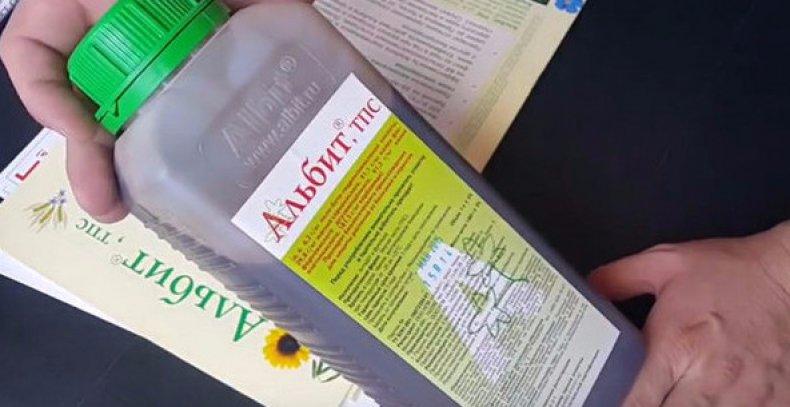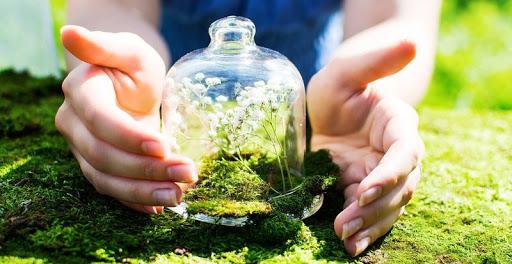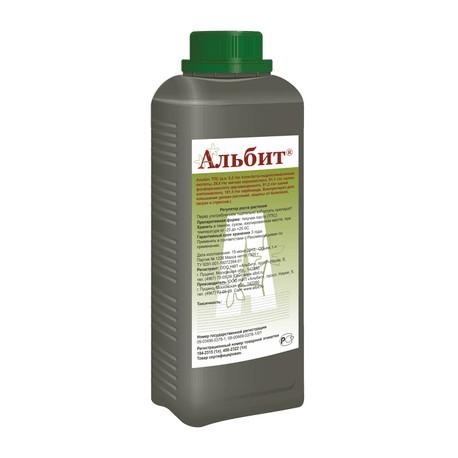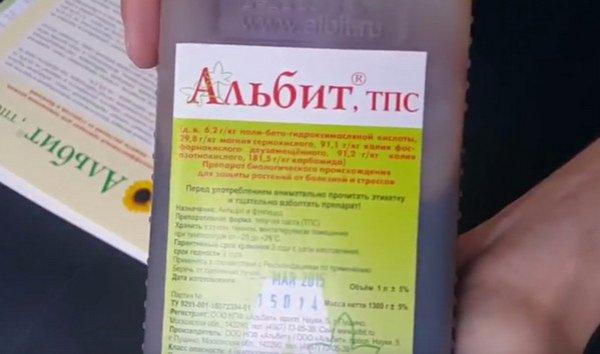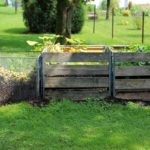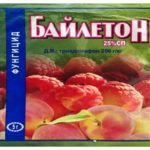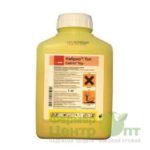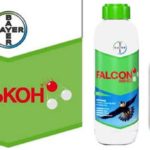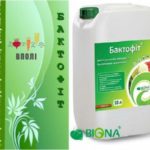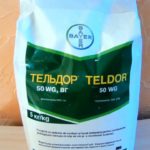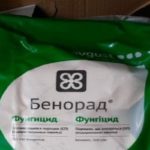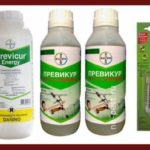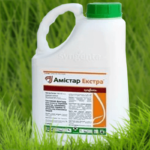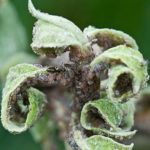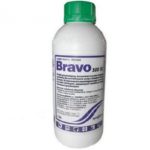Modern plant protection products not only have a bactericidal effect, but also have other, no less useful properties. Let's consider the principle of action and conditions of use of Albit, a Russian-made drug, its composition, dosage and solution consumption for treating different types of crops. Can it be combined with other means, storage features and what drugs with a similar effect on plants can be replaced.
Composition, release form and principle of action
The biological product was developed by the Russian company Albit. Available in the form of a flowing brown paste with a slight pine scent, packaged in 1 liter bottles. It is used as a fungicide, as well as a crop growth regulator and antidote. The active ingredient of the drug is poly-beta-hydroxybutyric acid, which is produced by bacteria of the Bacillus megaterium species living in the soil. In nature, they live on the roots, being there constantly, having a stimulating effect on growth, promoting resistance to pathogens and poor external conditions.
The fungicide contains substances that enhance the effect of the main one: urea, magnesium sulfate, potassium nitrate and potassium phosphate. Albit TPS does not contain living microorganisms, so it is more stable to environmental influences.
Mechanism of action
The principle of action of the product is to stimulate the plants’ own protective functions. Protects cultivated plants from the effects of drought and other natural stresses, from the effects of pesticides, and enhances the effect of fungicides.
Being in the soil, it heals it, improves the removal of nutrients from applied fertilizers. The result of using Albit is an increase in yield by 10-30%, obtaining a harvest in a short time. This effect of the drug was observed on 70 types of crops.
In what cases is it used?
"Albit" is considered the only bioantidote and is recognized as the standard antistress agent in practical agriculture.Thanks to its action, it is able to preserve up to 68% of the harvest. It is used to immunize crops against many diseases - bacteriosis, late blight, root rot, etc. General use with pesticides enhances the collective effect of the drugs.
Dosage and rules for using the fungicide "Albit"
The concentration of the solution and the application rate of the Albit preparation depend on the crop being treated. Information on dosages and consumption of working fluid is specified in the instructions. The drug has low consumption rates.
Vegetables
To treat tomatoes, cucumbers and other vegetables, prepare a solution of 1 ml per 10 liters of water, spray in the 2-3 leaf phase and repeat after 2 weeks. Consumption – 4 l per 100 sq. m. Treatment can be combined with watering with a fertilizer solution. Soaking the seeds, according to the instructions, is carried out for 3-10 hours, the concentration is 2 ml per 1 liter. 1 kg of seeds are soaked in this volume.
Cereals
When treating seeds, the solution concentration is 40-100 ml per ton, 10 liters of liquid per ton are consumed. For 2-fold spraying in the tillering and heading phase, prepare a solution of 40 ml per hectare, the application rate is 200-300 liters per hectare.
It is recommended to mix the growth stimulator in one mixture with pesticides, herbicides and fertilizers in liquid form.
Berries
Currants and gooseberries are sprayed during the growing season when the buds open, then 1-2 more times after 25-30 days. Concentration – 50 ml per hectare, consumption – 500-600 l per hectare. On private farms, it is recommended to water the plant with a solution at the rate of 1 ml per 10 liters, pouring enough to completely wet the leaves.
Fruit trees
For trees, prepare a solution of 1 ml of microfertilizer per 10 liters, spray it in the pink bud phase, after flowering ends and when the fruits reach the size of a walnut. The treatment is also carried out for prophylaxis in order to strengthen the immunity of plants before signs of disease appear. Use 2-5 liters of working solution, depending on the size of the tree. It is possible to some extent replace chemical fungicides with Albit in order to reduce pesticide stress, the cost of processing and to obtain products free of toxic substances.
Security measures
According to the toxicological properties, Albit paste belongs to hazard class 4, that is, to low-toxic drugs. These include products that are safe for people, plants, insects and animals. This is also the advantage of Albit, because most commonly used pesticides and biofungicides belong to classes 1, 2 and 3. The product has no waiting period; fruits, grains and berries can be harvested immediately after spraying. Due to its non-toxicity, Albit is widely used in organic farming, that is, environmentally friendly.
When preparing the solution and spraying, you need to work with the drug in light protective clothing. Wear gloves and a respirator. No more protection is required. Poisoning with Albit almost never happens, but if this happens, it is enough to drink an activated carbon tablet and rinse the stomach.
Compatibility with other substances
Albit fungicide is fully compatible with any pesticides, fertilizers, and growth stimulants. It is recommended for use in tank mixtures. This reduces processing costs and time, and increases the effectiveness of all components of the mixture.
Features of drug storage
The biological product is stored for 3 years, starting from the date of release. Albit is stored in its original packaging, with the lid tightly closed. After the expiration of the storage period, the fungicide must be disposed of; its effectiveness decreases sharply. Temperature conditions – from -20 °C to +25 °C, keep the drug in a dry and unlit place. There should be no animal feed, food or medicine nearby.
What can replace the product?
Analogues of the drug for the active substance are TPS "Ekopin", for the effect on plants - "Agat-25K", "Agropon", "Symbionta", "Mycefit", "NV-101", "Ribav-Extra". Biological products are equally safe, and their effectiveness is not inferior to agrochemicals with a toxic effect on plants.
"Albit" is a new biological preparation for protecting plants from fungi and pathogenic bacteria, produced by a Russian company. It is economical and requires a very small volume to process large areas of plantings.
Because of this, the payback of the product when processing basic crops ranges from 3 to 30 times. This makes it promising for use on an industrial scale; it can also be used on personal plots. Albit can be used to treat garden and vegetable crops, spring and winter cereals. It is recommended to use only the original drug from the manufacturer, and not to use counterfeits.

